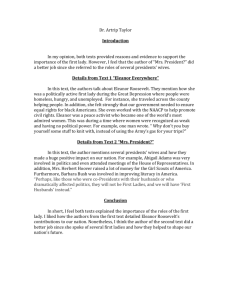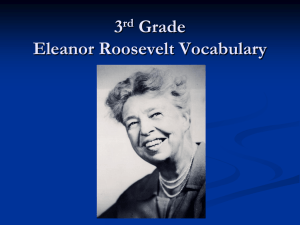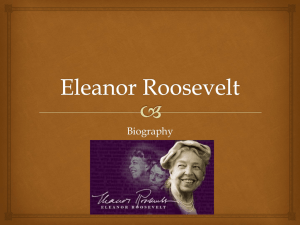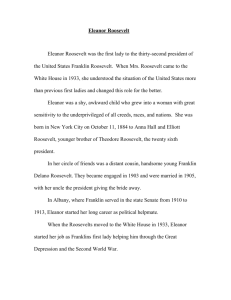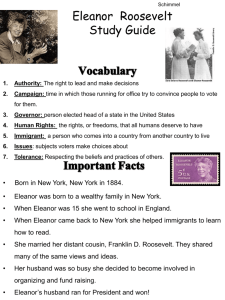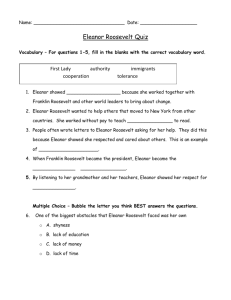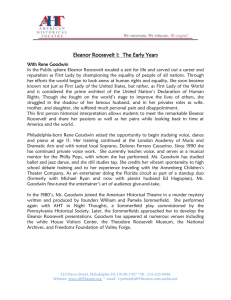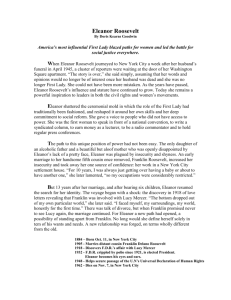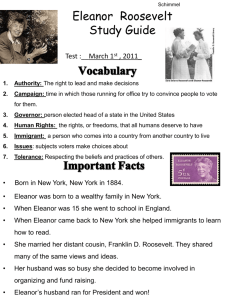presentation on Eleanor Roosevelt
advertisement
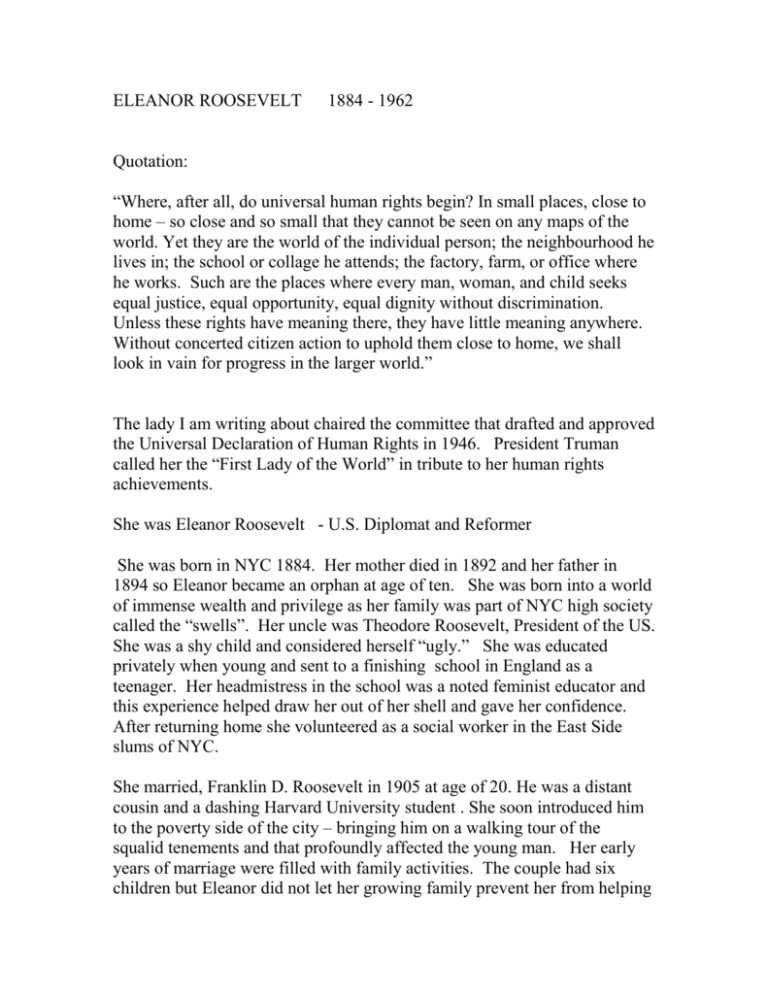
ELEANOR ROOSEVELT 1884 - 1962 Quotation: “Where, after all, do universal human rights begin? In small places, close to home – so close and so small that they cannot be seen on any maps of the world. Yet they are the world of the individual person; the neighbourhood he lives in; the school or collage he attends; the factory, farm, or office where he works. Such are the places where every man, woman, and child seeks equal justice, equal opportunity, equal dignity without discrimination. Unless these rights have meaning there, they have little meaning anywhere. Without concerted citizen action to uphold them close to home, we shall look in vain for progress in the larger world.” The lady I am writing about chaired the committee that drafted and approved the Universal Declaration of Human Rights in 1946. President Truman called her the “First Lady of the World” in tribute to her human rights achievements. She was Eleanor Roosevelt - U.S. Diplomat and Reformer She was born in NYC 1884. Her mother died in 1892 and her father in 1894 so Eleanor became an orphan at age of ten. She was born into a world of immense wealth and privilege as her family was part of NYC high society called the “swells”. Her uncle was Theodore Roosevelt, President of the US. She was a shy child and considered herself “ugly.” She was educated privately when young and sent to a finishing school in England as a teenager. Her headmistress in the school was a noted feminist educator and this experience helped draw her out of her shell and gave her confidence. After returning home she volunteered as a social worker in the East Side slums of NYC. She married, Franklin D. Roosevelt in 1905 at age of 20. He was a distant cousin and a dashing Harvard University student . She soon introduced him to the poverty side of the city – bringing him on a walking tour of the squalid tenements and that profoundly affected the young man. Her early years of marriage were filled with family activities. The couple had six children but Eleanor did not let her growing family prevent her from helping others. During world war 1 she became active in the public service, working for the American Red Cross. Her husband suffered a polio attack in 1921 and she helped him with his political career. When he became President in 1933 Eleanor dramatically changed the role of the first lady. She gave press conferences and even had her own newspaper column entitled “My Day”. Eleanor spoke out for human rights, women’s issues and children’s causes. She also wanted to help the country’s poor and stood against racial discrimination. Following Franklin’s paralytic illness attack in 1921 Eleanor began serving as a stand-in for her incapacitated husband making public appearances in his behalf with increasingly successful results. She started working with the Women’s Trade Union League raising funds for the Unions goals – 48 hour work week, minimum wage and the abolition of child labour. During World War 11, Eleanor supported the war effort and travelled abroad to visit U.S. troops. After her husband’s death in 1945 she was selected to be a delegate to the United Nations General Assembly, serving for eight years until 1953. She became the chair of the United Nations’ Human Rights Commission and as part of this commission she helped to write the Universal Declaration of |Human Rights. This was to be her greatest legacy. She often joked that she was out of place among so many academics and jurists, but her intellect and compassion were her greatest assets. In 1961, when J.F. Kennedy was President, he made her a delegate to the United Nations and selected her to serve as chair of the Commission on the Status for Women. Besides her political work Eleanor wrote several books about her life and experiences. 1961 she wrote her autobiography Eleanor died of cancer in November 1962, age 78. A revolutionary first lady, she was one of the most outspoken women to ever live in the White House.
